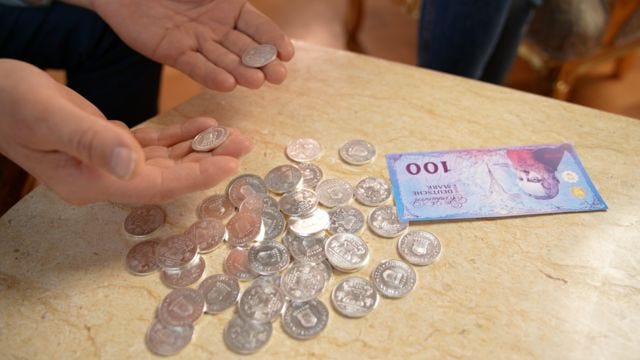A self-proclaimed kingdom in Germany that does not recognize Germany
BBC article sent by my Ukrainian friend
My friend from Kharkiv in Ukraine (who is also a sound producer for my music) shared with me the following BBC Ukraine article about Germans who do not recognize Germany - all unvaccinated.
With help of google I translated it from Ukrainian in English below - thinking it could be of interest to both pro-and anti- freedom convoy audience here in Canada too.
Source: https://www.bbc.com/ukrainian/features-63928904
A self-proclaimed kingdom in Germany that does not recognize Germany
Deep in the countryside in eastern Germany, there is an invisible border.
The towers of the castle can be seen from under the treetops. A sign at the entrance gate solemnly informs the visitor that he is entering the territory of another country.
The Königreich Deutschland, or "Kingdom of Germany", is a self-proclaimed independent state with its own self-appointed king.
Peter the First, as he prefers to call himself, receives us in a rather gloomy, wood-lined hall.
About ten years have passed since his coronation, which took place according to all traditions with a state and a scepter, and the founding of his "kingdom", which mints its own money, prints its own passports and has its own flag.
The king is known in Germany as a Reichsbürger, one of an estimated 21,000 people considered by the country's secret services to be conspiracy theorists because they do not recognize the legitimacy of the post-war German state.
The community made headlines this week after the arrest of 25 people suspected of plotting to storm the Reichstag and overthrow the German government.
King Peter says he has no such aggressive intentions.
But he is sure that the German state is "destructive and sick".
"I don't want to be part of this fascist and satanic system," he says.
We sit on plush chairs under a bright chandelier in another room and start a conversation.
This is not a social salon, we are surrounded by lights and cameras. This is King Peter's own TV studio, in which he hopes to launch his TV channel. As I learn, one of his subjects will record every moment of our meeting.
He said he felt he had no choice but to found his kingdom after unsuccessfully running for mayor and member of the German parliament.
"Corrupt and criminal people or those who are ready to be used thrive in the German system. People with an honest heart, who want to change the world for the better in the interests of the common good, have no chance."
His real name is Peter Fitzek, and his activities have repeatedly led to conflicts with German law.
Germany does not recognize either the kingdom or its documents. Fitzek has several convictions for driving without a license and his own health insurance program. He also spent several years in prison for embezzling money from his citizens, but the sentence was later overturned.
The regional secret service, which has been monitoring him and his kingdom for almost two years, told us that they view his actions as a threat. They compare it to a cult that instills conspiracy theories and extremist ideology in people.
Such theories and ideology began to spread in Germany in recent years due to the pandemic. And it seems that Covid-19 has increased the support and number of "subjects" of the kingdom.
Peter Fitzek tells us that he has about 5,000 citizens. He expands the kingdom, buys up land in Germany to create a series of communities in which these people can live.
We visited one such outpost about 240 km from the royal castle.
Ancient trees surround the site of another ancient castle in the village of Berwalde, an hour and a half south of Berlin. About 30 people live in the main building or in vans scattered on the lawn along the track.
Despite the medieval beauty of the castle, the place looks gloomy. Buildings are still being repaired here and the territory is being cleared. Tree trunks still grow through the framework of the old greenhouse.
But local people are proud of their home, which they consider also the territory of the kingdom.
Citizens of the Kingdom do not pay taxes or send their children to German schools, which is illegal in Germany. They have their own legal structure, which I'm told is run by King Peter, and eventually they also plan to create their own health care system.
"The kingdom can provide everything you need in your daily life. Food, social security, all these systems are there," says Benjamin, who recently moved here with his family and is in charge of the kingdom's PR.
Despite the statement to build a sustainable ecological community using modern technologies, the citizens of the "kingdom" seem to have little faith in modern medicine.
None of them have been vaccinated against Covid-19, Benjamin told me. This is the common position of Reichsburgers, many of whom participated in protests against quarantine measures.
"People who think for themselves today are often considered conspiracy theorists," says Benjamin. "But often these people stay up at night thinking about problems, not just their own, but about society and politics."
Leaving the territory of the commune and returning through the village, we saw a man on the lawn in front of the house. When I asked what he thought of his neighbors, he frowned. According to him, they should pay taxes. After all, they still have access to Germany's resources.
But most of all, he added, he is worried about his children - what effect will such a neighborhood have on them?
For many years, "citizens of the Reich" were the subject of jokes. Now Germany is learning to take them seriously.






